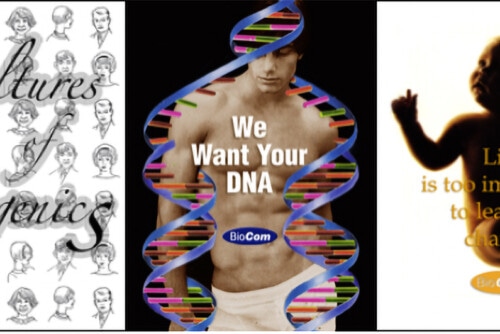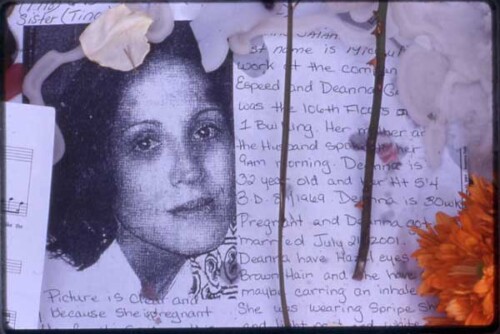In his analysis of Deanne Borshay Liem’s personal documentary, First Person Plural (2000), David Eng points to “the dearth of vocabularies to investigate this critical juncture of private and public,” and asks us to sustain a discussion of “the ethics of multiculturalism in relation to the current emergence of what [I] call the ‘new global family.'” 1 Eng’s elaboration of the figures of two mothers considers what psychic and political space must be opened up to take in the presence of both adoptive mother (or parent—though his psychoanalytic argument rests on the position of the mother) and birth mother (and more figuratively, homeland). 2 His question brings to mind three oft-cited feature films that address the contradictory (and political) ways love and inequality circulate between the “two mothers” in adoption: The Official Story (1985), Casa de los Babys (2003), and Losing Isaiah (1995). 3 These films viscerally demonstrate what I would suggest is at stake in Leinaweaver’s and Castañeda’s papers: the urgent possibilities of recognition of the transnationally and/or transracially adopted child’s independent origins and subjectivity outside of the (usually) white nuclear family, and of the Third World mother’s own subjectivity, recuperation of what Castañeda calls a “relation to her conditions of birth,” restoration of collective history, and reparation—both psychic and material (i.e. transfer of capital to support robust programs to support women, children, and families, promotion of ethical adoption practices, and support for global movements for economic and social justice [e.g. fair trade, women’s rights]). 4
In the exquisitely powerful Argentinian film, The Official Story, an adoptive mother, Alicia, married to a military official slowly realizes that her beloved young daughter is the child of a “disappeared” mother, whose grandmother has searched for her since her own pregnant daughter’s abduction and “disappearance” by the murderous military junta. The elderly woman is part of the Madres de la Plaza de Mayo, the group that has marched against the abuses of the dictatorship, demanding to know the fates of their disappeared children. She tells her own daughter’s story to the adoptive mother, after they’ve met as each searches for the truth about their child. The horror of Alicia’s realization that her husband knew, was complicit, and may have been directly involved in torture, and the ethical, intimate implications of her child’s originary theft, are devastating—to the characters, and to viewers. A previously apolitical high school history teacher, Alicia’s consciousness changes irrevocably through her search, with her recognition of the suffering of her child’s other mother. “What will we do if it’s true?” she asks the child’s likely biological grandmother.
John Sayles’ film, Casa de los Babys brings us to an unnamed Latin American country, where a group of women from the U.S. are waiting in a small hotel (known by locals as Casa de los Babys) for children to be referred (assigned) to them for adoption. For all the differences of place and personality among them, they are a group bathed in white privilege, in contrast to the poor maids and laborers that stream into town in the pre-dawn hours to work. Sayles gives voice to a direct critique of transnational adoption through the rather comical, no-goodnik figure of the hotel owner’s son, who rails against the imperialists who demand native babies like so many natural resources, as his sharp-tongued mother reminds him that their livelihood is dependent upon the gringas’ money. However, it is the private exchange between two mothers that brings home the unbearable, complicated sadness of this unequal distribution of political, economic, and affective capital.
In an achingly painful scene, an Irish woman from Boston (Eileen), and a young Latin American maid in her room to clean (Asuncion), listen uncomprehendingly to each other describe (one in English, the other, Spanish) her hopes for her child. Eileen dreams out loud of the snow day she will spend with her daughter, full of the pleasures of making snow angels and drinking cocoa together. Asuncion responds with her own dreams that the baby daughter she relinquished has found a happy life in America with a mother like this one. Later, Eileen decides to name her adopted daughter “Esmeralda”—the name Asuncion had given her own daughter at birth. The sharing of these two mothers’ fantasies of their daughters forges a delicate emotional link between them: each mother’s private dream depends symbolically, politically, and unequally, upon the other.
I would argue that even Losing Isaiah, a notoriously problematic film about the politics of transracial adoption, contributes productively to our conversation about “ethical multiculturalism.” The film’s weaknesses are tremendous (and all the more galling because it works as a tear-jerker): among other things, it exploits the fears of white parents that if they adopt domestically, their children might be taken back by birth mothers who’ve had a change of heart, or gone through “recovery.” The narrative raises the sensational specter to white audiences of Black people with nationalistic agendas hijacking domestic adoption to prevent well-meaning, financially well-off white parents (like the couple played by Jessica Lange and David Strathairn) from providing families for needy Black children relinquished by their crack-addicted, neglectful mothers. But it also raises questions about the white family’s exclusively (and typically) white social networks, and their complete lack of familiarity with important aspects of African American culture (e.g. the long list of African American children’s literature intoned in court). And it demands that its liberal, white social worker-mother remake her material and psychic bonds with her adopted son’s “conditions of birth,” acknowledging his “blackness” through acceding to his African American mother’s claims. The traumatic rupture of his addicted birth mother’s inability to care for him, and the failed recuperation of their bond through his court-ordered return to her, are uneasily resolved when she decides to hand him back. The film leaves us wondering not only whether Isaiah’s African American mother (Halle Berry) will recover an authentic place in his life, but what sort of space will open for Isaiah to recognize himself in the history of two mothers.
- Eng, 3.[↑]
- Eng, 1-37.[↑]
- The Official Story, Luis Puenzo, dir. (Historias Cinematograficas, 1985); Casa de los Babys, John Sayles, dir. (IFC Films, 2003); Losing Isaiah, Stephen Gyllenhaal, dir. (Paramount Pictures, 1995). David Eng has also commented on Casa de los Babys in “Political Economics of Passion: Transnational Adoption and Global Woman,” Studies in Gender and Sexuality 7.1 (2006): 49-59, 56.[↑]
- See: Jessica Benjamin, The Bonds of Love (New York: Pantheon Books, 1988) for a psychoanalytic discussion of recognition and maternal subjectivity; Eng, 1-37, on the importance to the transnational adoptee of restoring a sense of collective history; and Eng and Han, 157-163, on racial reparation and mourning.[↑]



